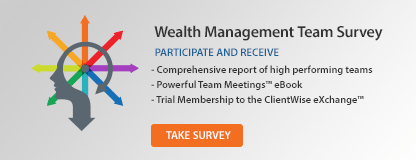Ask Yourself These 12 Questions To Uncover Your Best COIs
 Your client advocate and professional advocate relationships, or centers of influence, are incredibly important for the success of your business. As a seasoned advisor once told me: “Your referrals are as valuable to your business as your clients, if not more so.” I would add to that, that your client advocate and professional advocate relationships are only as valuable as you allow them to be, through the knowledge and understanding you provide them of your business.
Your client advocate and professional advocate relationships, or centers of influence, are incredibly important for the success of your business. As a seasoned advisor once told me: “Your referrals are as valuable to your business as your clients, if not more so.” I would add to that, that your client advocate and professional advocate relationships are only as valuable as you allow them to be, through the knowledge and understanding you provide them of your business.
The ClientWise Conversation is crucial because it facilitates a give and take that creates trust in the relationship between advisor and client or advisor and referral source. This trust will only be facilitated by someone else acting on your behalf if they have a strong belief in your business, along with the knowledge to back up that belief.
Are your advocacy partners or centers of influence prepared to present you in the best light? Ask yourself the questions below about your best referral sources, whether client advocate or professional advocate relationship. Keep in mind that not all of these need to be accounted for. The idea is that running through the list of questions should give you a better idea of how to improve your advocacy relationships, both from your standpoint and theirs:
These last two are especially important. The best center of influence and advocacy relationships are created with a process to account for each person’s role in the relationship and how that relationship benefits the other person. Ideally this is a two way street—mutually beneficial—though, this is somewhat less straightforward when considering your client advocate relationships. Make sure that whatever the relationship, both parties agree to the terms and understand how those terms work.


